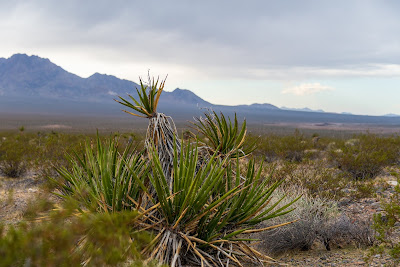Governor Dismisses Mojave Wilderness; CDPA 2010 Left Out of Recent Committee Action
You heard it here already -- the California Desert Protection Act of 2010 (CDPA 2010, or S. 2921) was going to face a lot of hurdles this year, and its chances of making it out of the Senate Committee for Energy and Natural Resources were slim. However, I found it frustrating to read today that the Senate Committee delivered 18 bills and may deliver another 11 before the Senate recess in August. CDPA 2010 was not among this list of bills for delivery. Given the broad support that CDPA 2010 receives from communities, recreation enthusiasts and even energy companies, it was still surprising that CDPA 2010 was not included on the Senate Committee's list of business before August recess. After Congress resumes business in September, there will not be much time left to conduct legislative business, further reducing the chances that CDPA 2010 will be passed this year.
Meanwhile, the Governor of California mocked the need to protect threatened and endangered species--to include the Mohave ground squirrel--from a rush to industrialize the California desert with energy projects. He blamed "environmentalists" for delaying renewable energy projects, ignoring the fact that it was the private energy companies that were short-sighted enough to select sites that are biologically sensitive. Not every solar energy project is facing opposition. The Governor is attempting to marginalize citizens asking for common sense policy, and he is deceptively portraying the issue as black-and-white: environmentalists vs. jobs. Would the Governor blame "environmentalists" if a company's proposal to build a wind energy site in the middle of a Redwood grove were delayed? What if a company wanted to start off-shore drilling on a coral reef?
Bulldozing thousands of acres of pristine public wilderness for private interests is a bad business decision. There are examples of smarter business decisions, and those are exemplified by Abengoa and Beacon Solar power projects, which the companies chose to build on disturbed land of lesser ecological value. The Governor may not be able to distinguish between a good business decision and a bad one, but lets hope more energy companies catch on to the example set by Abengoa and Beacon.
Meanwhile, the Governor of California mocked the need to protect threatened and endangered species--to include the Mohave ground squirrel--from a rush to industrialize the California desert with energy projects. He blamed "environmentalists" for delaying renewable energy projects, ignoring the fact that it was the private energy companies that were short-sighted enough to select sites that are biologically sensitive. Not every solar energy project is facing opposition. The Governor is attempting to marginalize citizens asking for common sense policy, and he is deceptively portraying the issue as black-and-white: environmentalists vs. jobs. Would the Governor blame "environmentalists" if a company's proposal to build a wind energy site in the middle of a Redwood grove were delayed? What if a company wanted to start off-shore drilling on a coral reef?
Bulldozing thousands of acres of pristine public wilderness for private interests is a bad business decision. There are examples of smarter business decisions, and those are exemplified by Abengoa and Beacon Solar power projects, which the companies chose to build on disturbed land of lesser ecological value. The Governor may not be able to distinguish between a good business decision and a bad one, but lets hope more energy companies catch on to the example set by Abengoa and Beacon.


I Support CDPA 2010 and hope S.2921 passes.
ReplyDelete